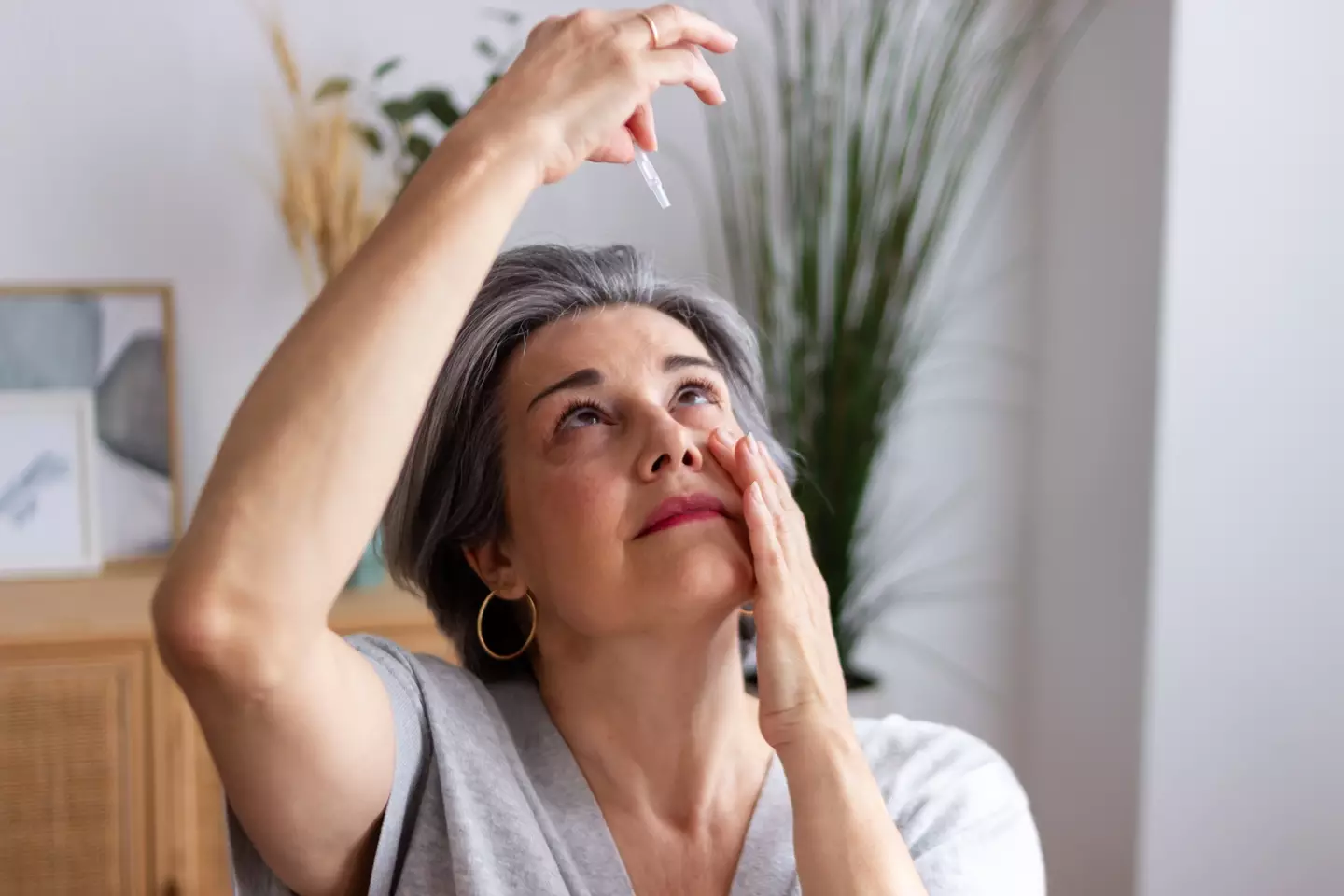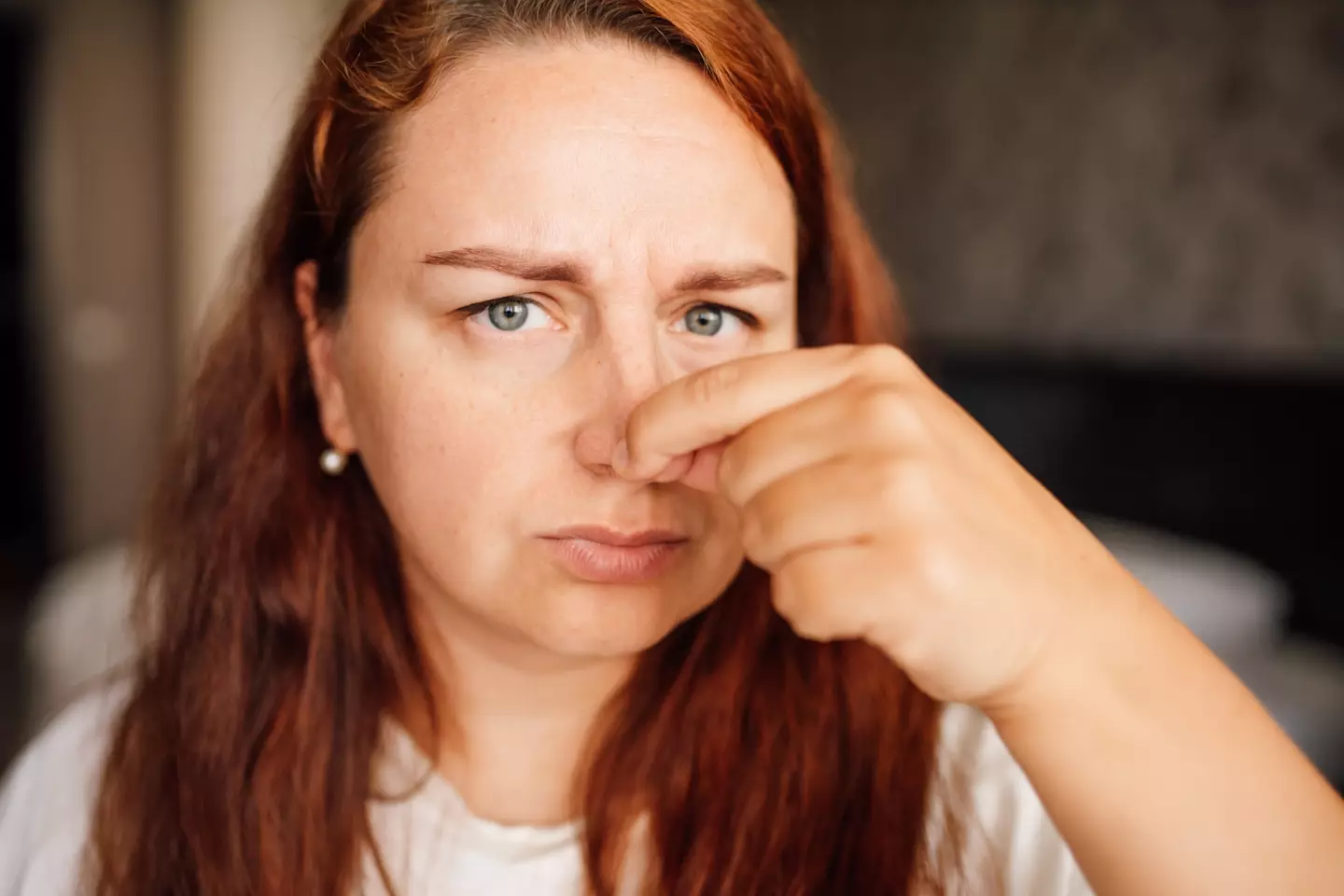
It's viewed by many as one of the most deeply-dreaded times of a woman's life but it turns out there's more to menopause than meets the eye.
By this, we mean that, on top of the frequently-discussed symptoms of the phase - like hot flushes, brain fog and on-off bleeding - there are a number of other, more obscure signs that indicate the menopause is looming.
For those in need of a biology lesson, the menopause is, technically, the natural cessation of menstruation.
Basically, it's when a woman's reproductive years come to an end, traditionally defined by the gradual stopping of periods.
Advert
This is caused by a decline in both oestrogen and progesterone levels inside a woman's body, and typically occurs between the ages of 45 and 55 - though, this can vary depending on family history.
In the majority of cases, women experience the menopause gradually, initially going through a phase known as the 'perimenopause', when only a small number of symptoms present themselves. Others, however, plummet straight into it.
And according to Balance, there's a number of 'surprising' menopause symptoms.

Cold flushes
You've likely heard of hot flushes in relation to the menopause, but what about sudden bursts of ice-cold tingling?
Advert
Apparently, an all-at-once chill - that is said to last between a few seconds to a couple of minutes - is pretty common during the early stages of the phase, but is often overlooked.
The cause of such a sensation is reportedly unknown, but likely related to changes of hormone levels in the hypothalamus gland - the area of the brain that controls temperature.
Dry eyes
Many women complain of suffering a hay fever-like dryness in their eyes alongside other symptoms of the menopause - though, again, it's often seen as an overlooked or somewhat rare symptom.
Advert
This can be defined as feeling grittiness in the eye, or even suffering blurred vision - and for women that spend a lot of their working life using computers, this symptom can prove a real nightmare.
According to research published in the 2017 Journal of Mid - life Health, it is likely that this is caused by a lowering of testosterone levels, with the hormone vital for tear-film production.

Brittle nails
A gradual worsening of the condition of your nails could indicate that you're soon set to go through the menopause.
Advert
This could including your nails snapping or breaking, and generally becoming thinner or softer.
It's keratin - a protein - that's in charge of giving your nails their strength, which itself it produced by the likes of oestradiol, progesterone and testosterone, all of which themselves lower when menopause kicks in.
Heartburn
This unnerving and often-uncomfortable pain that sometimes leaves an unpleasant taste in your mouth, can give you poor breath and make you bloated - also known as acid reflux - is more common during the menopause.
Advert
It is most commonly caused by stress, excessive weight, poor diet or drinking alcohol, but can be caused by the fluctuating and reduced hormone levels that define the menopause.

Dizziness
While brain fog is traditionally thought of as a common symptom of menopause, many women claim to have also experienced general dizziness during their menopause journey.
Often, this lightheadedness occurs intermittently, and supposedly tends to take place in a hot shower - but can happen elsewhere.
This could be caused by the fluctuation of oestradiol, progesterone and testosterone, all of which have an affect on the widening and narrowing of blood vessels, which themselves transfer oxygen around the body.
These hormones also affect balance functions within the brain, likely causing dizziness.
Affected sense of smell
It's a bit of an odd one, but apparently, some women experiencing either the perimenopause or the full shebang report not being able to smell things as keenly as they once did.
Others, claim that they've become super sensitive to certain smells since going through this phase, and are subsequently left averted to them.
The brain processes and interprets a person's sense of smell and taste, and so fluctuating hormone levels likely affect this.

Tinnitus
This complex condition - which describes a frustrating ringing or humming sound in the ears - can suddenly emerge during this phase of life.
It is when auditory pathways become affected in some way, and is known to prompt the likes of anxiety and depression in many sufferers.
In fact, some women have claimed the sensation left them unable to sleep or concentrate at work.
In a 2022 survey conducted by Newson Health, 19 percent of perimenopausal and menopausal women interviewed claimed to have suffered the symptom.
Burning mouth
This peculiar sensation can sometimes lead the sufferer to feel a burning on their tongue, gums, lips, the inside of their cheeks, or the roof of their mouth. It can range in terms of severity, but many women have compared it to the feeling of burning their mouth on a hot drink.
The functioning of the teeth, bones, ligaments and the membranes inside of the mouth are supported by oestradiol, progesterone and testosterone, which reduce during menopause.
This reduction in function can itself have a direct impact on oral health, possibly causing dryness, gum disease and bad breath.

Itchy skin
As well as being unable to satisfy an itch, many perimenopausal or menopausal women claim the phase made their skin feel dryer and rougher.
The reducing of hormone levels could take collagen away from the body, causing thinner skin and possibly an increased amount of fine lines and wrinkles.
Heart palpitations
The feeling of your heart suddenly being faster than usual isn't the most common symptom of the menopause, but it can happen.
This can last between a few seconds for a couple of mutes, and often coincides with a hot flush, night sweat or a dizzy spell.
If you have been affected by the contents of this article, please find more information and support via Menopause Matters on their website, or email [email protected].
Topics: Health, Women's Health, Periods